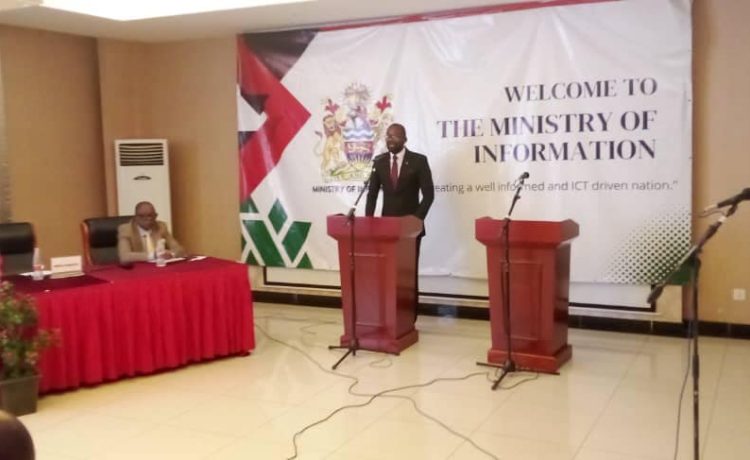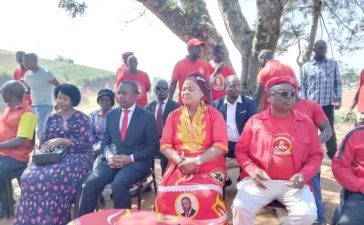After suffering brutal irrelevance due to drought of relevant corruption stories that elevated its flag, the Platform for Investigative Journalism (PIJ), opted to resurrect a story which they believed was sensational and relevant to the stakes of its presumed glory – the story of Sattar and his contract with the Malawi Government.
In their recent publication which “exposed” Government’s payment to Sattar firm in relation to a performed contract of supplying equipment to the Malawi Defence Forces (MDF), the journalist claimed threats from the MDF personnel and opted to flee into exile. While others are suggesting that he was simply looking for means to leave Malawi and justify free-meal ticket from his sponsors, we relegate that issue to another day when all machinations will be exposed.
Meanwhile, a background perspective of the seemingly controversial contract with Sattar is important.
To begin with, the arms deal Government contract with Sattar was concluded during the DPP regime during when all contracting activities starting with Government’s decision to procure the equipment and the negotiation process following bidding announcements were done.
With the DPP-led government, Sattar secured a deal with the Malawi Police Service to procure and supply water cannons, among other supplies. He also secured a similar deal at MDF involving assorted military equipment. Meanwhile, as was the tradition then, Sattar remains obliged under their sideline covert agreements to give the DPP gurus, who aided him secure the contract, their share of the spoils.
The contracts were highly overpriced, but what was agreed remains to be effected because whether the one party to a contract (in this case the Government) was bad in negotiating a contract, what becomes agreed under a contract is what the courts are enjoined to effect: the intention of the parties. Malawians today can only suffer the pain of this scheme which can be reasonably suspected to have been a doing of the DPP leadership to loot more and more through dubious contracts such as the one entered into with Sattar.
On 8th November 2021, when the Chakwera administration activated due diligence process throughout government contracts, the ACB issued a Restriction Notice which eventually, according to the law, expired on 7th February 2022. This Restriction Notice had the effect of stopping the Government from making any payments to all contracts related to Sattar as he has been on the ACB radar of investigation.
On 9th January 2022, the Attorney General issued a Press Release indicating cancellation of all contracts that were prevailing between the Malawi Government and all companies belonging to, or connected with Zunneth Sattar. The AG made this move pursuant to section 46(c) of the Public Procurement and Disposal of Assets (PPDA) Act. The said section says the following:
“A Procuring entity may terminate a procurement contract for convenience, if it is determined to be in public interest, and SUBJECT TO PAYMENT FOR WORK SATISFACTORILY COMPLETED, OR SERVICES SATISFACTORILY PERFORMED PRIOR TO THE EFFECTIVE DATE OF TERMINATION and for reimbursable expenses actually incurred under the procurement contract and reasonable termination costs, but excluding lost profit.”
Following the expiry of the ACB Restriction Order, the ACB had a choice of either renewing it or not renewing it. The ACB chose not to renew the Restriction Order, arguing that the Attorney General’s cancellation of contracts was enough and that the ACB’s Restriction Order renewal would be redundancy of sort.
The ACB Director, Martha Chizuma, indicated this view in her letter which has was published by the Platform for Investigative Journalism (PIJ). The ACB wrote the Attorney General on 9th February 2022, seeking legal advice on how to deal with the question of payment for goods that companies connected to Sattar delivered to the Government, considering that the Restriction Notice which the Bureau issued on the same expired on 7th February.
In her seeking of a legal opinion, the ACB Director did not include the issue of whether extending or renewing the Restriction Order would be a redundancy or not. To the extent that the Attorney General’s cancellation of the Sattar-related contract was rooted in section 46(b) of the PPDA Act, the inevitable consequence was that Government remained, according to the cited law, obliged pay the Contractor for all contracts that were performed to the satisfaction of the client before the cancellation came in.
It must be highlighted that while the Attorney General was cancelling all contracts that Sattar had with the Government, the contracts upon which the same ACB put a Restriction Order were completed in 2020 before the Attorney General’s cancellation, a scenario that leaves the Government with two options of (1) either following what the PPDA Act says or (2) breaching the law by refusing to pay for the goods supplied, a scenario that would expose the Government to legal liability.
Given the fierce independence that the Malawi judiciary is reputed with, it is no doubt that Sattar would proceed to sue the Government and win the case. The Court would slap the Government with huge penalties that would fundamentally exceed what would be amicably paid as per the agreed contract (which by the way done by DPP gurus, on behalf of Government, when they were in power). The Government chose the lesser devil and this is what the so-called PIJ journalist attempted to scandalize, painting a picture the government is on a corruption and looting endeavor by effecting the payment.













